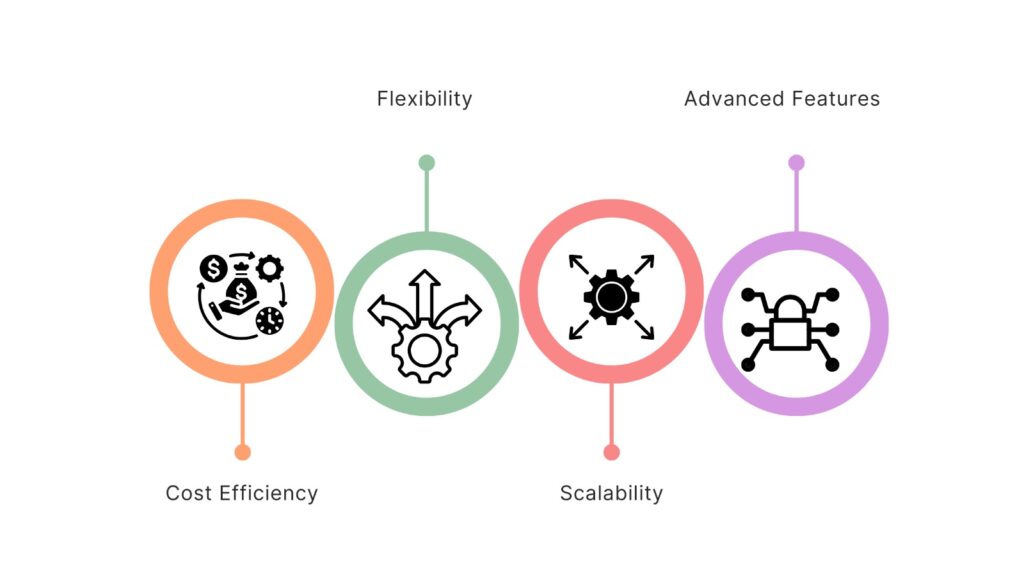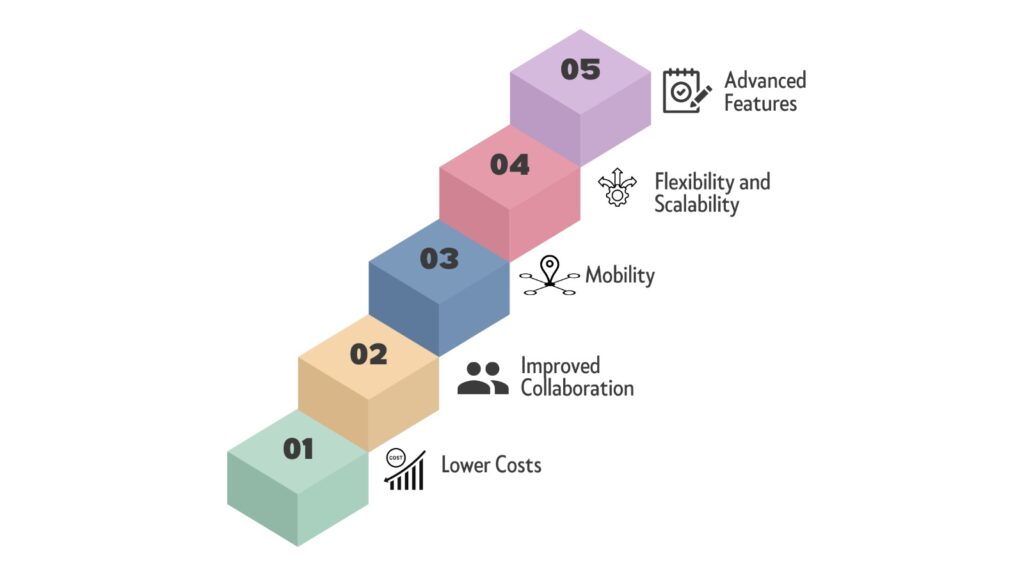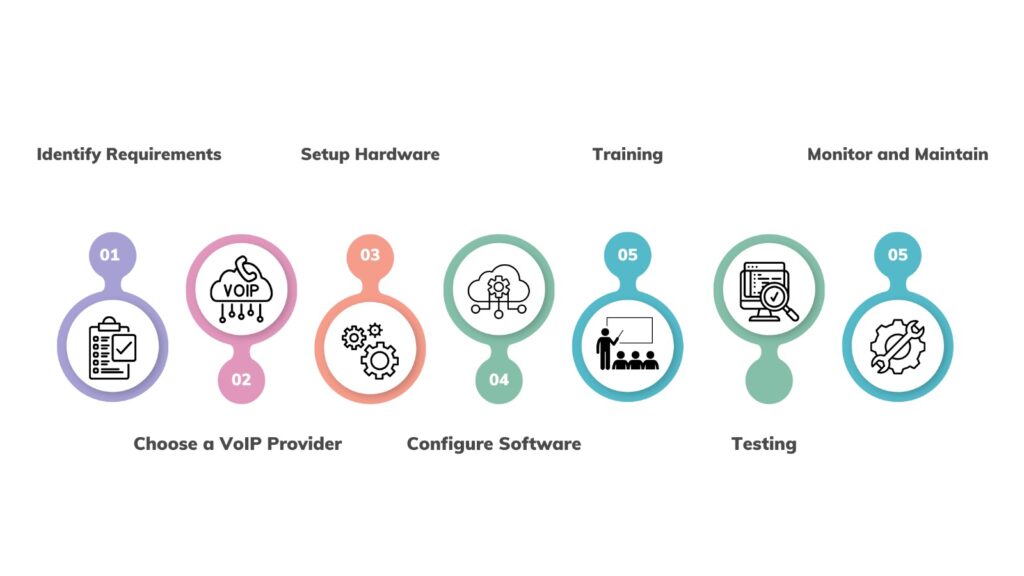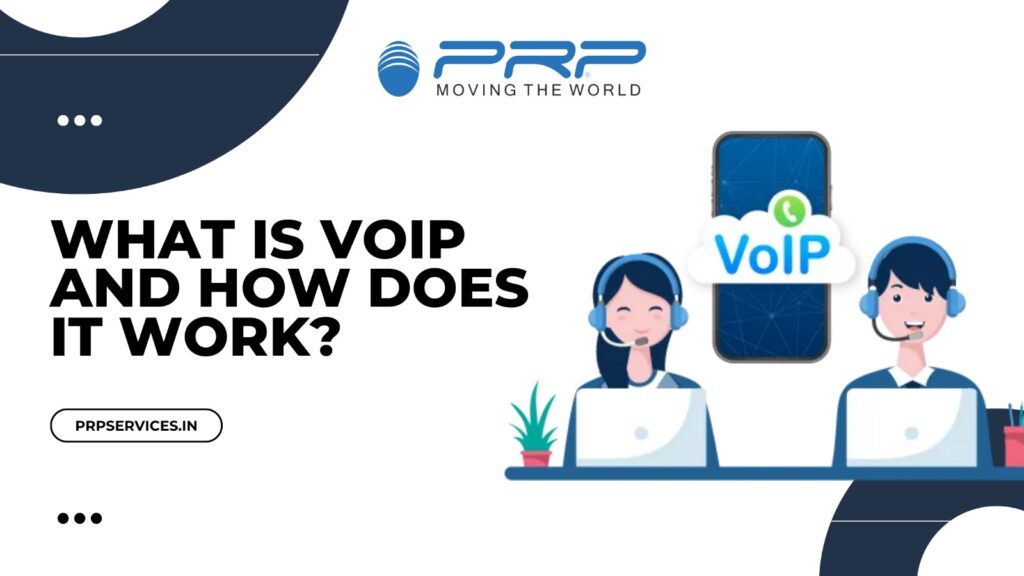VoIP (Voice over Internet Protocol) is a technology that enables voice communication over the internet. It replaces traditional telephone lines and is quite popular because it offers cost-effective and flexible solutions.
VoIP Services
- Hosted PBX (Private Branch Exchange): A cloud-based phone system that provides advanced calling features to businesses.
- SIP Trunking: A service that provides voice service to existing PBX systems over the internet.
- Unified Communications (UC): An integrated service that offers voice, video, messaging, and collaboration tools on one platform.
- Virtual Numbers: These are local or international phone numbers that work over the internet.
- Call Center Solutions: These services provide tailor-made solutions for customer support and sales teams.
- VoIP Softphones: Software-based phones that can be installed on smartphones, tablets, and computers.
Why Does It Exist?

- Cost Efficiency: More affordable than traditional phone lines.
- Flexibility: Can be accessed anywhere and anytime via the internet.
- Scalability: Can easily scale up or down with business growth.
- Advanced Features: Offers features like call forwarding, voicemail to email, video conferencing, and call analytics.
Benefits of VoIP

- Lower Costs: Significant cost savings on long-distance and international calls.
- Mobility: Makes remote working and on-the-go communication easy.
- Improved Collaboration: Video conferencing and real-time collaboration tools enhance productivity.
- Flexibility and Scalability: Can scale up or down according to business needs.
- Advanced Features: Features like auto-attendant, call recording, voicemail to email, and call analytics are available.
Why Is It Popular in the Market?
- Cost Reduction: Companies adopt VoIP to reduce operational costs.
- Remote Work: Supports remote and flexible work environments.
- Technology Advancements: Due to better internet infrastructure and the demand for advanced features.
Technology
VoIP technology transfers voice data over a packet-switched network using Internet Protocol (IP). This means that voice signals are converted into digital data packets that travel through the internet and are then converted back into voice signals at the destination.
How It Operates
- Analog to Digital Conversion: The user’s voice is converted from an analog signal to a digital signal using a codec.
- Packetization: The digital voice data is broken into small packets, each with the destination address and sequence information.
- Transmission: These packets are sent over the internet using packet-switched networks.
- Reassembly: At the destination, the packets are reassembled in the correct order.
- Digital to Analog Conversion: The digital signal is converted back to an analog signal so the recipient can hear the voice clearly.
Integration in Business

- Identify Requirements: Identify the specific needs of the business.
- Choose a VoIP Provider: Compare multiple VoIP providers and select the best fit.
- Setup Hardware: Setup necessary hardware like IP phones, headsets, and network infrastructure.
- Configure Software: Install and configure VoIP software and applications.
- Training: Train employees to use the new system.
- Testing: Test the system to ensure everything is working correctly.
- Monitor and Maintain: Regularly monitor and maintain the system.
Price
The price of VoIP services varies depending on the provider, service type, and features. Basic plans can start at around ₹2000 per user per month, while advanced plans with more features can go up to ₹3500 per user per month.
Use Case
A medium-sized business needs an affordable and scalable phone system to support remote work and international operations.
- Problem: High costs of traditional phone lines, lack of flexibility for remote workers.
- Solution: Implement a VoIP system with virtual numbers and unified communications.
- Benefits: Reduced costs, improved flexibility and scalability, enhanced collaboration.
Providers
RingCentral: Comprehensive VoIP solutions with UC features.
Nextiva: Business VoIP services with a focus on customer support.
Vonage: Flexible VoIP plans for small to medium-sized businesses.
8×8: Cloud-based communication solutions with advanced features.
PRP Services: VoIP services tailored for entrepreneurs and small businesses.
Feedback from Companies
- RingCentral: Companies appreciate the robust features and reliability but sometimes mention higher costs.
- Nextiva: Highly rated for excellent customer support and ease of use.
- Vonage: Praised for flexibility and good call quality but occasionally cited for complex setup.
- 8×8: Noted for comprehensive features and global reach, but some users mention the interface could be more intuitive.
- PRP Services: Loved for its simplicity and affordability for small businesses.
VoIP systems are popular in the market because they provide businesses with flexible, cost-effective, and feature-rich communication solutions that perfectly suit modern business needs.
Frequently Asked Questions (FAQs)
To set up VoIP, you need IP phones or VoIP-enabled devices (smartphones/computers), headsets, a router, a stable internet connection, and optionally, Analog Telephone Adapters (ATAs).
VoIP can handle emergency calls via E911 services, which send your location to responders. Register your address with your VoIP provider, and be aware that VoIP may be unavailable during power outages or internet disruptions.
Yes, VoIP can integrate with CRM systems, Unified Communications platforms, collaboration tools like Microsoft Teams, call center software, and email services for features like voicemail to email.
Ensure your VoIP provider uses encryption, implement firewalls and VPNs, keep software updated, use strong passwords, and regularly monitor your network for security.
VoIP reliability depends on a stable internet connection, a backup power source, a reputable provider, and well-configured network infrastructure.
Conclusion
VoIP technology offers a cost-effective, flexible, and feature-rich alternative to traditional telephone lines, making it an attractive choice for businesses. By understanding the necessary equipment, emergency call handling, system integration, security measures, and reliability factors, businesses can successfully implement and benefit from VoIP solutions. Embracing VoIP can lead to significant cost savings, enhanced mobility, and improved collaboration, aligning perfectly with the needs of modern enterprises.

